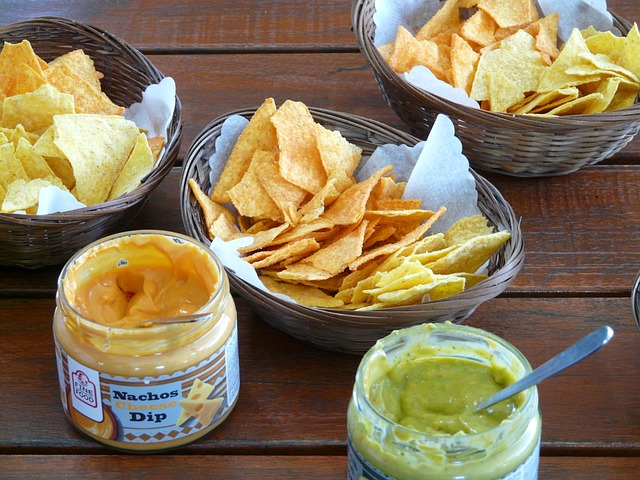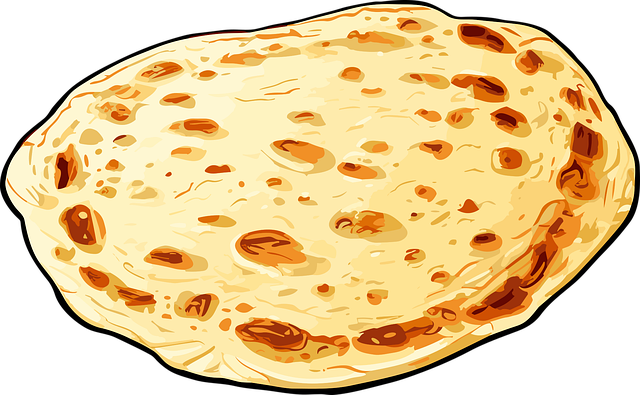El Milagro Unflavored Tortilla Chips have led a global shift towards handmade chips, revolutionizing Mexican cuisine. Their popularity is driven by superior taste, texture, and artisanal production methods passed down through generations. This trend reflects a broader movement towards authentic, transparent food experiences, with chefs hand-rolling each chip to elevate their dishes. El Milagro chips offer a rich, natural flavor profile, eco-friendly packaging, and a connection to Mexico's culinary heritage, making them a favorite among modern consumers.
In the realm of Mexican cuisine, a quiet revolution is brewing—handmade tortilla chips are making waves in restaurants across the country. This shift back to traditional chip-making methods offers a refreshing alternative to mass-produced alternatives. The article delves into this rising trend, exploring the art and advantages of handmade chips, with a special focus on El Milagro Unflavored Tortilla Chips. By integrating these artisanal treats into menus, Mexican restaurants are enhancing customer experiences, paying homage to tradition, and setting themselves apart in a competitive culinary landscape.
- The Rise of Handmade Tortilla Chips in Mexican Cuisine
- – Exploring the traditional art of chip-making
- – The advantages of handmade chips over mass-produced alternatives
The Rise of Handmade Tortilla Chips in Mexican Cuisine

In recent years, handmade tortilla chips have emerged as a game-changer in the realm of Mexican cuisine. What was once a simple side dish has evolved into a culinary symbol of authenticity and quality. Mexican restaurants across the globe are now embracing the art of crafting their own chips, shunning mass-produced alternatives. This shift is largely attributed to the growing demand for El Milagro Unflavored Tortilla Chips—a testament to the superior taste and texture that only hand-made chips can offer.
The rise of handmade tortilla chips reflects a broader trend in today’s dining landscape: a desire for more authentic, transparent, and artisanal food experiences. Chefs and restaurateurs are no longer content with generic, uniform chips; instead, they seek to elevate their offerings by showcasing the delicate process of hand-rolling each chip. This attention to detail not only enhances the overall dining experience but also fosters a deeper connection between the restaurant and its patrons, who appreciate the craftsmanship and passion that goes into every bite.
– Exploring the traditional art of chip-making

The traditional art of chip-making is a centuries-old practice deeply rooted in Mexican culinary culture. It’s a process that begins with the simple yet vital ingredient: the tortilla. Handcrafted by skilled artisans, each El Milagro Unflavored Tortilla Chip tells a story of patience and precision. The dough, made from carefully selected corn or wheat flour, is meticulously shaped, cooked, and then cut into thin slices, transforming them into chips that are both crispy and pliable.
This time-honored technique ensures every chip retains its authentic flavor, allowing patrons in Mexican restaurants to savor the rich heritage behind each bite. The result is a crisp, delicate snack that stands as a testament to the culinary traditions passed down through generations. El Milagro Unflavored Tortilla Chips, with their artisanal origins, play a crucial role in this culinary symphony, providing a connection to Mexico’s vibrant food history.
– The advantages of handmade chips over mass-produced alternatives

Handmade tortilla chips, like those offered by brands such as El Milagro Unflavored Tortilla Chips, offer a superior culinary experience compared to their mass-produced counterparts. The craftsmanship involved in handmade chips ensures a fresher and more consistent taste, as they are typically made with high-quality ingredients without artificial flavors or preservatives. This artisanal approach results in a crispier texture and richer flavor profile that captivates the senses.
Additionally, handmade chips often have a lower environmental impact due to reduced packaging and minimal waste. They are usually produced in small batches, allowing for better control over quality and enabling restaurants to source local ingredients, further supporting sustainable farming practices. This attention to detail not only delights diners but also aligns with modern consumer preferences for authentic, natural, and locally sourced products.
In conclusion, the resurgence of handmade tortilla chips in Mexican restaurants is a testament to the evolving culinary landscape. By embracing traditional methods and prioritizing quality over quantity, establishments are offering guests a truly authentic experience. El Milagro Unflavored Tortilla Chips, for instance, exemplify this trend, providing a crisp and flavorful alternative to mass-produced options. This shift not only enhances the overall dining experience but also highlights the rich cultural heritage behind Mexico’s beloved snack.
